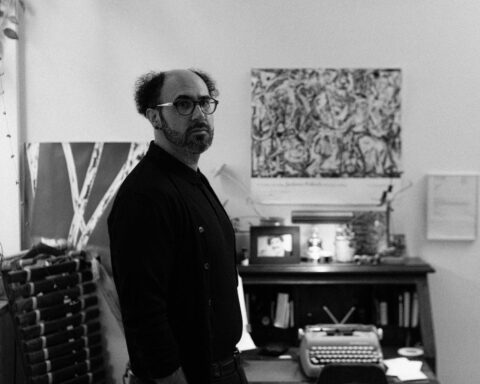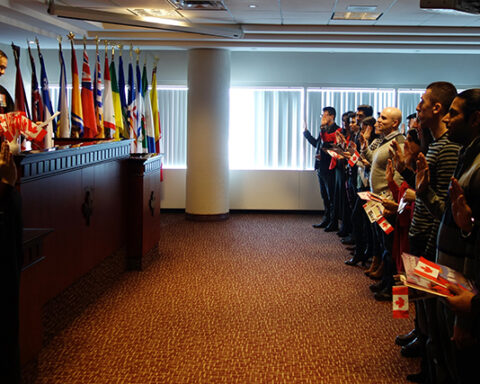Would-be Canadians will have to keep taking an oath to the Queen after the Supreme Court of Canada on Thursday refused to hear a challenge to the citizenship requirement.
The decision by the top court leaves intact an Ontario Court of Appeal ruling that upheld the “symbolic” oath.
At issue is a provision in the Citizenship Act that requires would-be citizens to swear to be “faithful and bear true allegiance to Queen Elizabeth the Second, Queen of Canada, her heirs and successors.”
The challenge to the requirement was launched by Michael McAteer, Simone Topey and Dror Bar-Natan — longtime permanent residents who want to obtain citizenship but, for different reasons, do not want to pledge allegiance to the monarchy.
Lawyer Peter Rosenthal said the high court refusal to hear the case doesn’t necessarily indicate an endorsement of the oath — but simply means the justices didn’t feel the case was worthy of their attention.
Informed of the Supreme Court decision that ends the battle, McAteer, 81, of Toronto, said he was disappointed but not surprised.
“It’s been a long haul,” said McAteer, a staunch republican who came to Canada from Ireland 51 years ago.
“(But) I feel the same: If the oath stands, then I won’t take Canadian citizenship.”
Topey, a Jamaican Rastafarian, said her religion forbids taking an oath to the Queen. Bar-Natan, an Israeli, argued that the oath represents entrenched privilege he opposes.
The federal government maintained that taking the oath has been around since Confederation.
In September 2013, a lower court judge ruled that any charter violation caused by the oath requirement could be justified in a democratic society. The Ontario Court of Appeal affirmed that decision last year.
In its ruling, the Ontario Court of Appeal noted the Queen remains Canada’s head of state, calling the oath a “symbolic commitment to be governed as a democratic constitutional monarchy unless and until democratically changed.”
Lawyer Peter Rosenthal said the high court refusal to hear the case doesn’t necessarily indicate an endorsement of the oath — but simply means the justices didn’t feel the case was worthy of their attention.
The irony, Rosenthal said, is that the courts have essentially said those who take the oath are free to disavow it after becoming citizens by adhering to the anti-monarchist cause.
“People who find the monarchy repugnant to swear to might want to do that,” Rosenthal said.
Topey, a Jamaican Rastafarian, said her religion forbids taking an oath to the Queen. Bar-Natan, an Israeli, argued that the oath represents entrenched privilege he opposes.
Former Liberal citizenship minister Sergio Marchi told The Canadian Press in 2013 that former prime minister Jean Chretien had agreed to allow would-be citizens to pledge allegiance to Canada instead of the Queen, but got cold feet at the last minute.
Faced with the looming Quebec referendum in 1995, Chretien decided against making the change, Marchi said.
Re-published with permission.




